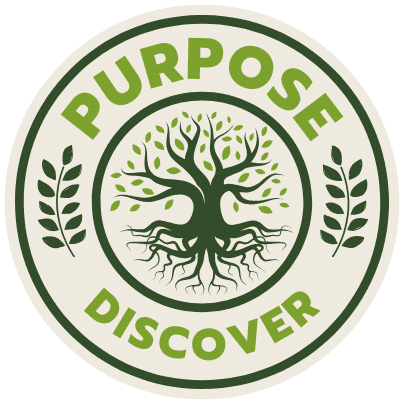There’s a strange kind of weight that comes with feeling directionless. Not just the usual “I don’t know what to do next” kind of confusion, but a deeper, almost physical ache of floating without an anchor. You look around and everything seems loud, cluttered, and a little meaningless. It’s like being on a treadmill that’s speeding up but going nowhere. Ever been there? It’s unsettling, to say the least.
The truth is, most of us hit this point at some stage. Life’s pace and expectations can make even the steadiest souls question their path. But here’s a radical thought: maybe this disorientation isn’t a glitch in the system. Maybe it’s the system forcing a reboot. When you feel lost, it’s often a sign that your current script isn’t yours anymore. It’s time to write a new one, one that actually feels like you.
Why Do We Feel Directionless in the First Place?
Before throwing yourself into some motivational frenzy, it helps to understand the root cause. Feeling directionless often stems from a disconnect between what you’re doing and what you truly value. Society’s loud chorus about success, money, and status can drown out your internal compass. Suddenly, you’re chasing goals handed to you by a culture or a family expectation rather than what sparks your soul.
Sometimes, it’s not external pressure but internal paralysis. The fear of making the “wrong” choice, or the illusion that there’s only one right path, can freeze you in place. And let’s not forget exhaustion—mental and emotional burnout makes clarity feel like a luxury you can’t afford.
So. If your life feels like a random series of events with no clear direction, know this: you’re not broken, just misaligned.
Listening to the Noise: What’s Really Yours?
Getting clear on what matters is harder than it sounds because the noise is relentless. Social media, well-meaning advice, your own past expectations—it’s a cacophony that buries your instincts. But your instincts are the secret map. How do you tune in?
Try this: spend time with yourself in ways that aren’t goal-oriented. Walk without headphones. Sit with a cup of coffee and no phone. Journal without a filter. These moments, small and unproductive on the surface, are profound signals from your subconscious.
What lights you up? What drains you? What feels like a chore and what feels like a calling? Writing these down or just observing them can start to reveal patterns. It’s not about finding a grand purpose in one sitting, but about rediscovering your own voice.
The Myth of Passion and Finding “The One Thing”
If you’re waiting to stumble upon your one true passion that will magically solve all your problems, let me stop you right there. Passion isn’t some mystical force that strikes like lightning. It’s more often a muscle that gets stronger with use. People confuse passion with perfection or with an all-consuming obsession. That’s rare and frankly, exhausting.
What if you approached building a life with curiosity instead? What if you gave yourself permission to explore, fail, and pivot without shame? The pressure to “have it all figured out” is a trap. Direction comes from movement, not from sitting still waiting for clarity to strike.
Build a Life That Sticks: The Small, Real Steps
So now you’re wondering, “Okay, but how do I actually start building this meaningful life?” Here’s a no-nonsense approach grounded in real-world experience.
1. Define What Matters to You, Not to Others
This is a foundational step but it’s deceptively tricky. Write down what you value—honesty, creativity, freedom, family, learning, whatever resonates. Then ask yourself how your current life reflects those values. This exercise alone can be eye-opening. If your day-to-day is out of sync, you’ve found your starting point.
2. Create Tiny Experiments
Big leaps can be paralyzing. Instead, test out small changes. Maybe it’s volunteering for a cause you care about, taking a class in something new, or starting a side project. These experiments are like breadcrumbs leading you to what feels alive and authentic.
3. Embrace the Messiness
Life-building isn’t a neat line; it’s a scribbly sketch. You’ll make mistakes, hate some attempts, feel confused again. That’s normal. Honor the process instead of beating yourself up for not having a “perfect” plan.
4. Seek Community
Isolation feeds directionlessness. Find people who inspire you or share your values. Not to copy them, but to create a support system. Real conversations spark insight and courage.
5. Revisit and Reflect Often
Your life isn’t a one-time project. Regular check-ins keep you honest with yourself. Are you still aligned? What’s shifted? Reflection is the secret sauce to staying on a path that actually matters.
The Role of Purpose: It’s More Than a Buzzword
Purpose can sound intimidating, like a four-letter word for pressure and expectations. But it doesn’t have to be grand or world-changing. Purpose can be as simple as showing kindness, creating something beautiful, or nurturing relationships. It’s what anchors you when external circumstances wobble.
If you’re scratching your head about where to start, consider exploring resources like a guide that digs deep into discovering personal meaning. Sometimes, outside perspectives and structured questions help illuminate the fog.
When Direction Flips: The Power of Saying “No”
Building a meaningful life isn’t only about adding things in; it’s also about pruning. Saying no to commitments, habits, or even relationships that drain you is revolutionary. Saying no clears space for what truly matters. It’s like cleaning out a cluttered closet—you can’t appreciate the gems if they’re buried under junk.
Don’t underestimate this. Holding onto things out of obligation or fear of missing out is a surefire way to stay stuck.
What About When You Can’t See the Big Picture?
Not everyone spots their “life’s work” early or even mid-life. Many wander, stumble, and circle back. That’s okay. Sometimes the big picture is a mosaic made of small, seemingly unrelated pieces. Trust the process, and keep moving in ways that feel honest.
And yes, it’s frustrating to not have a clear map. But here’s a little secret: the map isn’t as important as the act of walking your path with intention. Sometimes purpose reveals itself in the walking.
A Personal Note (Because I’ve Been There)
I spent a good chunk of my twenties feeling like an actor in someone else’s play. I chased what others told me success looked like: a stable job, a shiny resume, approval. It left me empty and restless. When I finally slowed down and looked inward, I realized I’d been ignoring my love for storytelling and connection.
It wasn’t a sudden epiphany, but a gradual peeling back of layers. I started small—writing essays, talking to friends about real struggles, volunteering in community projects. Those small steps slowly built a life that finally felt meaningful. It’s still a work in progress, but now my choices come from a place of alignment, not obligation.
If you’re feeling that ache right now, know that it’s a beginning, not a dead end.
Life That Means Something: It’s Ongoing, Not a Destination
Meaning isn’t a trophy you win. It’s a dance, a daily choice, a rhythm that shifts as you grow. You build it by showing up for yourself and others, testing what feels true, and being willing to change course.
When you embrace this messy, thrilling process, directionlessness isn’t a curse but a compass pointing to authenticity.
If you want some fresh ideas on uncovering your own unique spark, consider visiting this insightful resource about personal purpose discovery—it might just light the path you didn’t realize you were searching for.
So, what’s your next move?

